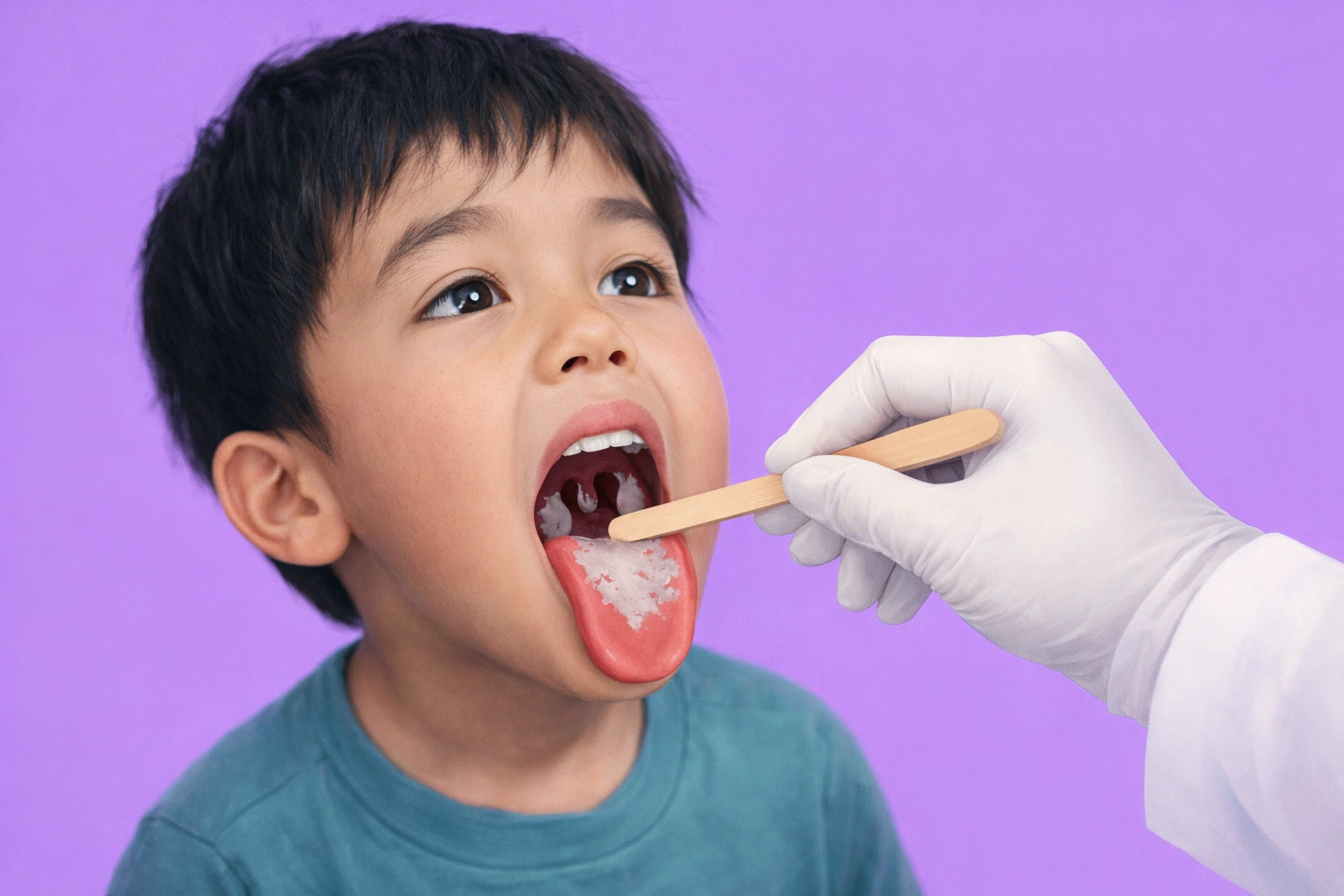
Diphtheria in Children: Symptoms, Treatment, and Prevention
Diphtheria is a serious and potentially life-threatening illness caused by the bacterium Corynebacterium diphtheriae. Even though it can affect individuals of any age, children are particularly vulnerable if not fully immunized. The most dangerous effects of diphtheria arise from a specific toxin produced by this bacterium, which can damage multiple organ systems.
How Diphtheria Spreads
This infection spreads chiefly through airborne droplets expelled when an infected person coughs or sneezes. Even those showing no visible symptoms, yet carrying the bacteria in their nose or throat, can transmit it. Transmission may also occur through direct contact with infected secretions, such as saliva or mucus, or by touching contaminated objects.
Unvaccinated or incompletely vaccinated children are at the highest risk. Diphtheria has the potential to spread rapidly in crowded environments, especially where vaccination rates are low.
Signs and Symptoms
At first, diphtheria often appears much like a common cold. A child may develop a sore throat, fever, hoarseness, and feeling generally unwell. A key red flag is the formation of a thick, grayish membrane on the tonsils or throat. This can advance rapidly, making it hard for the child to swallow or breathe.
As the infection progresses, the neck may swell significantly due to enlarged lymph nodes and soft tissue swelling, sometimes referred to as the “bull neck” appearance. Although less common, diphtheria can also affect the skin, especially if there are wounds, leading to chronic ulcers.
Possible Complications
The toxin can severely impact vital organs. Airway blockage from the throat membrane can cause respiratory collapse, potentially requiring urgent intervention in an intensive care unit. The heart is vulnerable, and the infection may trigger inflammation or irreparable damage to the heart muscle, leading to abnormal rhythms or heart failure. Kidney function may decline, and nerve damage might result in paralysis, often affecting the muscles of the throat.
Efficient medical care can resolve many of these complications over time, but some children may experience lingering effects.
Diagnosing and Treating Diphtheria
Diagnosis typically involves clinical examination alongside throat swabs to detect the bacteria. However, treatment should begin based on clinical suspicion alone, since delays can be fatal.
Treatment consists of two key strategies: first, administering diphtheria antitoxin to neutralize the toxin, and second, using antibiotics—usually penicillin or erythromycin—to eradicate the bacteria. In severe cases, airway emergencies may require procedures such as endotracheal intubation or tracheostomy to bypass the obstruction.
Supportive care for complications affecting the heart, kidneys, or nerves is also critical. Individuals who have had close contact with the infected child may require preventive antibiotics or a vaccine booster dose.
Preventing Diphtheria through Vaccination
Vaccination remains the single most effective defense against diphtheria. The DPT (Diphtheria-Pertussis-Tetanus) vaccine series starts in infancy with multiple doses, followed by booster shots through early childhood and adolescence. Ensuring full compliance with this schedule protects both the individual child and the wider community.
In regions with low vaccination rates, public awareness campaigns and school-based immunization programs are vital in preventing outbreaks. Regular boosters throughout life are also recommended, as immunity can weaken over time.
When to Seek Medical Attention
Diphtheria can escalate quickly, so seeking prompt medical attention is essential if a child develops throat pain, difficulty swallowing, fever, or develops a grayish throat membrane. Any child exhibiting respiratory distress, marked neck swelling, or weakness should be seen by a physician immediately.
Conclusion
Diphtheria is a critical health concern that can lead to severe illness through toxin-related damage to the respiratory system and vital organs. Fortunately, effective vaccines and early treatment mean most children can recover fully. Community immunity through vaccination is the best safeguard against re-emergence.
For parents seeking comprehensive pediatric care, including vaccination and diphtheria management, Kanchi Kamakoti CHILDS Trust Hospital (KKCTH) in Chennai offers expert support. Their skilled pediatricians, modern facilities, and family-centered care ensure that any child affected by diphtheria receives timely treatment and ongoing protection through immunization.



